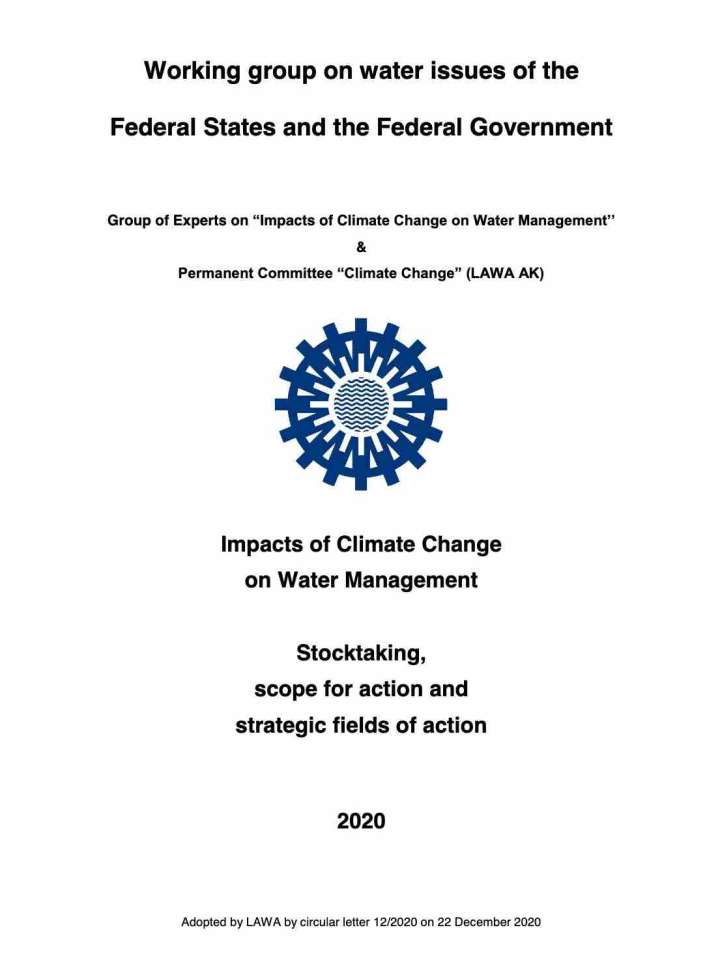Impacts of climate change on water management. Stocktaking, scope for action and strategic fields of action
The application-oriented report describes how changes in climate elements affect surface water, groundwater and the ecology of water bodies. It considers the above-ground run-off, aquatic and marine ecology, groundwater and coastal waters and estuaries. In December 2020, the German Working Group on Water Issues of the Federal States and the Federal Government (LAWA) prepared a comprehensive report on the concerns, potential responses and strategic fields of action in water resources management, updating the previous work released in 2017.
Increasing heat periods, more frequent and stronger local heavy rain events or accelerated sea level rise are just some of the discussed impacts of climate change. The report moreover presents examples of best practice and fundamental decision-making aids for integrating climate adaptation measures in their day-to-day water management activities.
15 fields of water management are analyzed:
- Inland flood protection and protection against high groundwater levels
- Coastal protection
- Urban drainage and wastewater treatment
- Flood protection: heavy rainfall and flash floods
- Drainage of low-lying coastal areas
- Marine protection
- Conservation of aquatic ecosystems
- Groundwater protection and groundwater use
- Public water supply
- Cooling water availability
- Hydropower generation
- Navigability
- Water abstraction for irrigation in agriculture
- Dam and reservoir management
- Low water management in watercourses
Explore further
